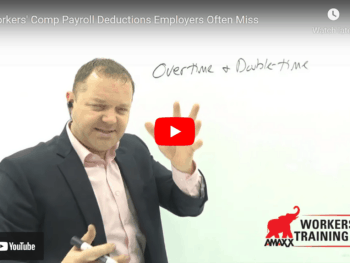There is an alternative to commercial insurance companies or self-insurance for your workers compensation needs. In about 20 states, including the three largest states, California, Texas and New York, there is a state sponsored insurance company that competes with the private insurance market for workers compensation policies and premiums. They are often referred to as the State Fund.
In some of these states, the state government takes an active role in the operation of the state insurance companies and the insurance company is a quasi-governmental agency. In other states, the state created and funded the insurance company, but no longer operates or manages it.
Each of these state operated insurance companies is domiciled in the state where they operate and they do not issue policies outside of the state boundaries.
The State Funds have come about because of the difficulty employers can have in securing workers compensation coverage, especially if they are in a high risk line of business. Employers who have excellent safety programs are coveted by the commercial insurance companies. The modification factor used to establish premiums reflects the lower than average loss experience of these companies.
The opposite holds true for companies who have higher than average loss histories. The standard insurance companies are not interested in obtaining the business, resulting in it being difficult for those employers to obtain workers compensation insurance.
A poor loss history is not the only reason employers will end up in the State Fund. The state legislators in every state are often tinkering with the workers compensation laws. Changes in the laws such as increases in the maximum weekly indemnity benefit rate, or the number of weeks an employee can collect benefits, makes for great vote buying strategy for state legislators, but results in increased cost to the workers compensation insurance companies. When the insurance companies are not allowed to raise the premiums proportionally to the additional claims cost, they become selective in whom they will insure. With cost increasing faster than premiums, very few insurance companies will write policies. When they do write policies, they are very selective. This results in employers with decent loss histories being pushed into the State Funds.
State Funds, like standard insurance companies, strive to assist the policyholders in reducing the number of insurance claims they have. The State Funds often offer various services to the policyholders.
Guidance in establishing a Return-to-Work program
Offering comprehensive loss control programs including on-site inspections
Ergonomic evaluations
Educational materials including posters, pamphlets, safety manuals
OSHA compliance assistance
Anti-fraud programs
Wellness programs
In about a dozen states the State Fund is the insurance company of last resort. The State Fund offers insurance coverage to all employers, often at a price that is slightly higher to much higher than what the insurance policy would cost from a standard insurance company.
When an employer cannot obtain workers compensation insurance from any other source, the department of insurance will mandate the employer be provided insurance by the State Fund. Of course, the State Fund charges an appropriate premium to reflect the higher exposure to claims when they insure these employers.
The single state coverage of the State Funds often makes them a poor choice for employers who have operations in multiple states. For instance an employer who has operations in both California and Nevada can insure his California operations through the State Compensation Insurance Fund, but will have to locate another insurer for the workers compensation policy to cover the Nevada operations.
State Funds are occasionally a smart choice for the employer. The premium charged can be lower if the charter does not mandate the making of a profit. The added services listed above – provide the policyholders with more value than the employer can purchase separately. Check with your state Department of Insurance to see if there is a State Fund available in your state.
Author Rebecca Shafer, JD, President of Amaxx Risk Solutions, Inc. is a national expert in the field of workers compensation. She is a writer, speaker, and publisher. Her expertise is working with employers to reduce workers compensation costs, and her clients include airlines, healthcare, printing/publishing, pharmaceuticals, retail, hospitality, and manufacturing. She is the author of the #1 selling book on cost containment, Workers Compensation Management Program: Reduce Costs 20% to 50%. Contact: RShafer@ReduceYourWorkersComp.com.
Editor Michael B. Stack, CPA, Director of Operations, Amaxx Risk Solutions, Inc. is an expert in employer communication systems and part of the Amaxx team helping companies reduce their workers compensation costs by 20% to 50%. He is a writer, speaker, and website publisher. www.reduceyourworkerscomp.com. Contact: mstack@reduceyourworkerscomp.com.
WORKERS COMP MANAGEMENT GUIDEBOOK: www.WCManual.com
WORK COMP CALCULATOR: www.LowerWC.com/calculator.php
MODIFIED DUTY CALCULATOR: www.LowerWC.com/transitional-duty-cost-calculator.php
WC GROUP: www.linkedin.com/groups?homeNewMember=&gid=1922050/
SUBSCRIBE: Workers Comp Resource Center Newsletter
Do not use this information without independent verification. All state laws vary. You should consult with your insurance broker or agent about workers comp issues.
©2012 Amaxx Risk Solutions, Inc. All rights reserved under International Copyright Law. If you would like permission to reprint this material, contact us at: Info@ReduceYourWorkersComp.com.


























